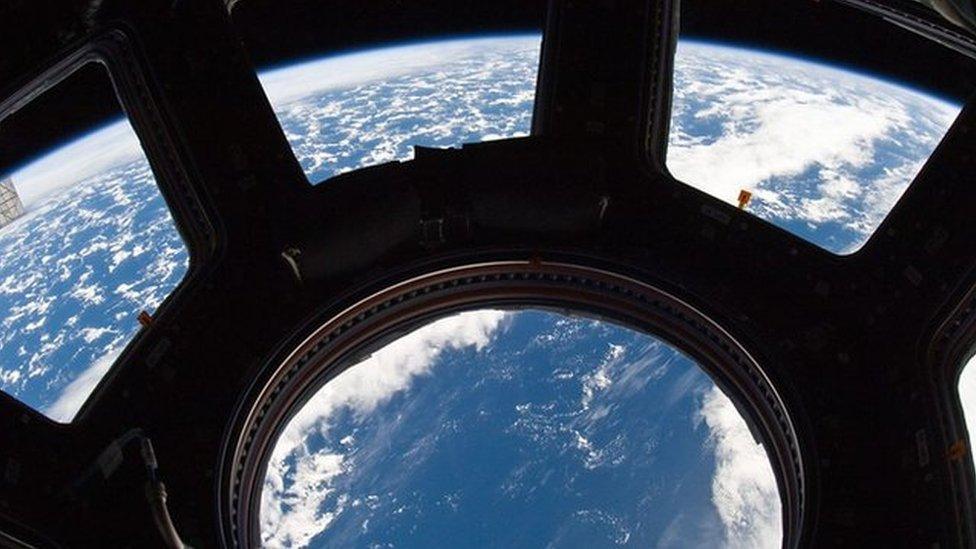Tim Peake: What six months in space does to you
- Published

Major Tim Peake has arrived at the International Space Station.
He'll be spending six months there, as the UK's first official astronaut.
The former army pilot will be carrying out experiments and projects designed to attract young people into science.
But what effect does six months in space have on your body - and your mind? We asked Libby Jackson from the UK Space Agency.
"I think the time will fly by but physically it will change him," says Libby, who's worked on Tim's mission.

"His bones will get weaker and his muscles will get weaker. He'll be doing two hours of exercise every day to try and combat those things.
"When he comes back to earth, it'll take about a year for his body to get over all the effects of being in a weightless environment for six months."
But it's not just what happens to his body. Libby says that all the astronauts say the same thing when they return.
"The one thing that really changes you is seeing the earth from up there. That's a view, that for all the photos and videos that come back home, unless you've seen it in your own eyes, you really can't truly appreciate it."

"That often will have profound impacts on the crew - we'll have to see what happens to Tim when he comes back."
That impact is known as the "overview effect" - literally what seeing the planet from space does to you.
Former astronaut Michael Lopez-Alegria explains that it's a lot to get your head around.
"It's really very impactful to see the place where the entirety of human history has occurred, below you. Seeing it's actually real."
As well as the size of the planet, Michael says there's one thing that really sticks out.
"You see the effects of human presence on the planet. You can see air pollution, contamination.
"You can see deforestation - a lot of bodies of water that have become smaller.
"It gives you a greater awareness of the fragility of the planet and the eco system and gives you a better sense of the ecosystem and how important sustainability is."
For more stories like this one you can now download the BBC Newsbeat app straight to your device. For iPhone go here, external. For Android go here, external.